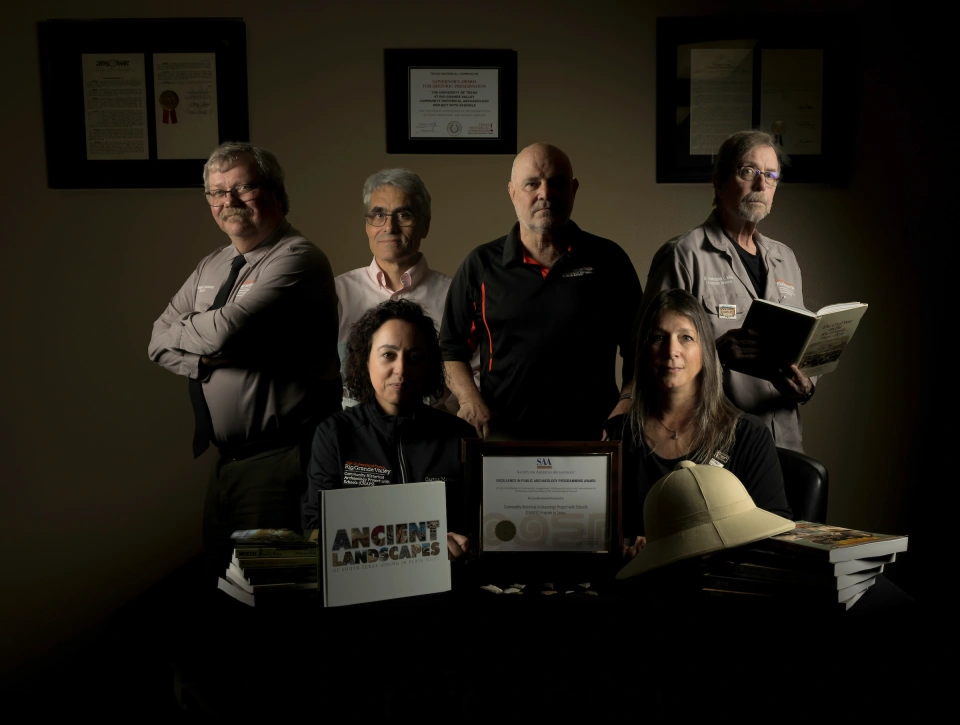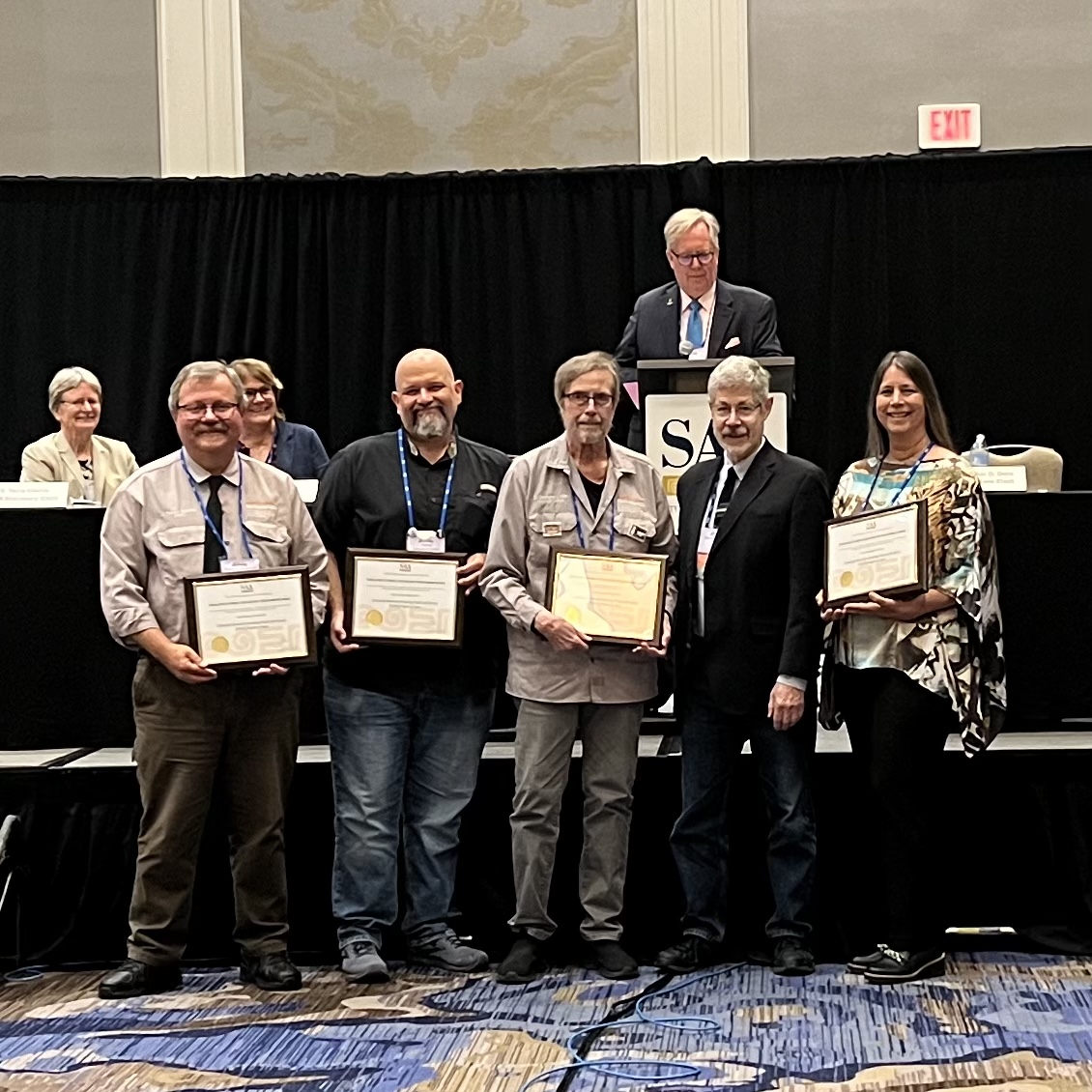By Amanda Alaniz
RIO GRANDE VALLEY, TEXAS – MAY 29, 2024 – The UTRGV Community Historical Archaeology Project with Schools (CHAPS) recently received the 2024 Society for American Archaeology’s (SAA) Excellence in Public Archaeology Programming Award.
The UTRGV faculty involved in the CHAPS Program attended the SAA Annual Ceremony to receive the award in New Orleans in late April.
The SAA is an international organization dedicated to the research, interpretation and protection of the archaeological heritage of the Americas. The award recognizes ongoing programs with best practices in archaeology outreach and education.
Dr. Russell K. Skowronek, CHAPS founding director and UTRGV professor of history and anthropology, said the recognition is an honor for everyone involved in the program and serves as high praise for their ongoing efforts.
“The Society for American Archaeology was formed in the 1930. It is the most respected organization of its kind in the Americas, with a worldwide reputation and presence,” Skowronek said. “To be recognized by SAA is a validation that what we have done at UTRGV has made and continues to make significant contributions to our archaeological knowledge of the past.”
ABOUT THE CHAPS PROGRAM
The CHAPS Program is a consortium of UTRGV faculty, lecturers, and staff who work locally and have embraced the teacher/scholar model in academics, wherein scholarly enquiry is intertwined with K-17 education and community engagement.
UTRGV faculty leading the CHAPS program and who received the award are:
- Skowronek, CHAPS Program founding director, UTRGV professor of History and Anthropology.
- Edward Gonzalez-Tennant, CHAPS Program associate director, UTRGV assistant professor of Anthropology.
- Christopher L. Miller, CHAPS Program associate director, UTRGV professor of History.
- Daniel Sandweiss, president of the Society for American Archaeology Board of Directors.
- Roseann Bacha-Garza, CHAPS Program manager, UTRGV lecturer II of Anthropology.
- Juan L. Gonzalez, CHAPS Program associate director, UTRGV associate professor of Geology.
- Carina Marques, CHAPS Program associate director, UTRGV assistant professor of Anthropology.
Since its inception in 2009, the CHAPS Program has been a multifaceted ongoing outreach program illuminating the prehistoric and historic times of South Texas. The program has given hundreds of lectures to schools throughout the Valley to educate students, educators and government organizations about the history of their hometowns.
CHAPS projects focus predominantly on the Valley region and bring to light the abundance of “lost history” in the community’s backyard. One of the most notable initiatives was research about the Underground Railroad in South Texas, a program that created the 45-minute “Just a Ferry Ride to Freedom” documentary.
Other significant projects are the CHAPS traveling exhibit, “Rio Grande Valley Civil War Trail” and “Ancient Landscapes of South Texas.”
“The CHAPS Program is all about taking scholarly research and making it accessible to the broader public,” Skowronek said. “We bring that information to the classroom and seek to work with local and regional chambers of commerce to encourage more visitors to experience the wonders of the place we call home.”
Visit utrgv.edu/chaps to stay updated with their upcoming projects and traveling exhibits.
ABOUT UTRGV
The University of Texas Rio Grande Valley (UTRGV) was created by the Texas Legislature in 2013 as the first major public university of the 21st century in Texas. This transformative initiative provided the opportunity to expand educational opportunities in the Rio Grande Valley, including a new School of Medicine and a School of Podiatry, and made it possible for residents of the region to benefit from the Permanent University Fund – a public endowment contributing support to the University of Texas System and other institutions.
UTRGV has campuses and off-campus research and teaching sites throughout the Rio Grande Valley including Brownsville (formerly The University of Texas at Brownsville campus), Edinburg (formerly The University of Texas-Pan American campus), Harlingen, Weslaco, McAllen, Port Isabel, Rio Grande City and South Padre Island. UTRGV, a comprehensive academic institution, enrolled its first class in the fall of 2015; the School of Medicine welcomed its first class in the summer of 2016, and the School of Podiatric Medicine in the fall of 2022.


